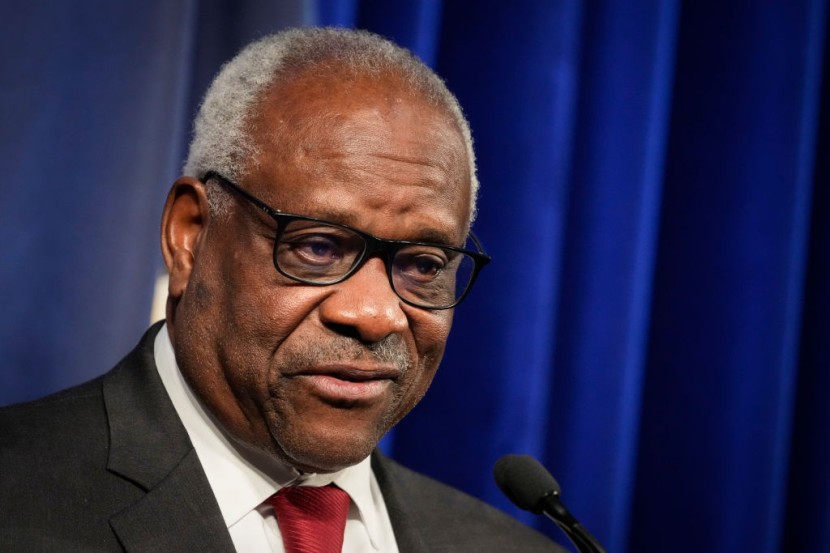
US Supreme Court associate justice Clarence Thomas says the court cannot be bullied into forming a ruling favoring the preference of some as reproductive-rights protests persist after a leaked draft Supreme Court opinion that would overturn the Roe v. Wade landmark decision.
"We can't be an institution that can be bullied into giving you just the outcomes you want," Thomas told a group largely comprised of lawyers and judges Friday at the 11th Circuit Judicial Conference in Atlanta, NBC News reported.
The 73-year-old justice noted that the events from this week are "a symptom" of such concern.
"We are becoming addicted to wanting particular outcomes, not living with the outcomes we don't like," the associate justice said.
At the same conference, per NPR, Chief Justice John Roberts called the leak of the draft ruling "absolutely appalling."
The Court Confirms Authenticity of Leak Document
The court confirmed the legitimacy of the leaked document published by Politico earlier this week, and Roberts ordered a probe.
The draft opinion obtained by the media outlet is a comprehensive denunciation of the 1973 ruling that established federal constitutional protections for abortion rights.
The court issued a statement on Tuesday in which Roberts blasted what he called "betrayal of the confidences of the Court was intended to undermine the integrity of our operations."
He emphasized that "it will not succeed," and the Supreme Court "will not be affected in any way."
According to the court, the leaked draft opinion does not reflect the court's final position.
An initial draft majority opinion penned by Justice Samuel Alito stated that the United States Supreme Court has voted to abolish Roe v. Wade which gave people the right to access abortion legally all across the country.
Anti-abortion activists are planning to get around progressive prosecutors who have promised not to enforce abortion offenses if Roe is reversed, while abortion rights advocates are concerned that overeager law enforcement officials will aim at the most vulnerable communities in states that forbid abortions.
Consequences if the Reversal of the Ruling Pushes Through
The Roe v. Wade ruling of 1973 and following court decisions secured a nationwide right to abortion until fetal viability, which occurs about 23 weeks into a pregnancy. The conservative Supreme Court appears to be on the verge of eliminating such safeguards, though its decision will be finalized in June when a formal judgment is announced.
If Roe gets finally reversed, abortion is likely to become a major issue in federal and state elections and municipal elections where the procedure's new legal setting will be implemented, as per a CNN report.
According to Katie Glenn, the government affairs counsel for the anti-abortion group Americans United for Life, prosecutors can come up with "policy determinations and then are potentially held accountable to voters" if voters are not satisfied with the results.
"Certainly politicians are people and they're vote counters, and so I think that there's going to be an element of reading the room as far as what the local community wants," Glenn said.
Even before the leaked draft hinted that the Supreme Court was on the edge of reversing Roe, some state and local prosecutors pledged not to prosecute abortion-related crimes if the precedent gets overturned.
Related Article : German Outlet Censors Video of Ukrainian Evacuee From Azovstal Plant Criticizing Azov Nazis, Kiev
© 2025 HNGN, All rights reserved. Do not reproduce without permission.








